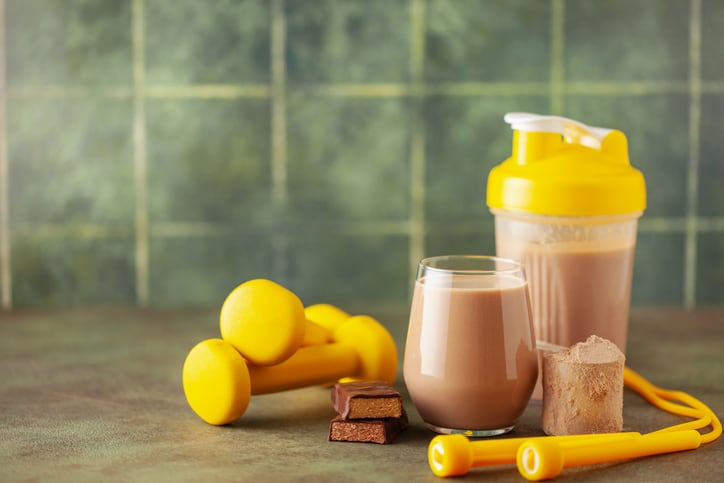A combination of L-carnitine, creatine and whey protein, when paired with a balanced diet, was associated with the most improvements, according to a study published in the journal Sports.
Conducted by researchers from the University of Oradea and other institutions in Romania, the study investigated supplementation preferences in recreational gym-goers, analyzing differences based on sex and gender and the effects of the products on strength and performance.
“Creatine supplementation in men produced performance levels similar to those of combination intake,” the researchers wrote. “In women, L-carnitine supplementation led to a remarkable performance improvement compared to the control.”
Whey protein showed the least performance improvement in women, and creatine also produced minimal results, consistent with the findings of previous studies in female populations.
“The lowest gains of the control group suggest that resistance training alone may not be sufficient to maximize strength development within this timeframe,” the researchers reported.
Want to be up-to-date with the research in sports nutrition?
The Active Nutrition Summit returns in 2025 to Vienna, bringing together industry leaders, researchers and innovators from June 23 to 25 for three days of cutting-edge insights, dynamic discussions and engaging networking opportunities.
The summit offers a one-stop shop for the latest must-have insights in the world of active nutrition. Take a look at our programme to learn more.
Trends in gym supplements
The study noted that the findings align with previous research, which suggests trends influenced by factors such as age and sex.
Fewer women reported using supplements compared to men, and when they did, they tended to prefer single ingredients rather than combinations. The higher consumption of L-carnitine among men indicated “potential gender-based preferences or related to body weight status,” according to the researchers.
Adults under 30 used supplements more and preferred multi-component products, whereas older adults showed the highest rate of non-use and favored L-carnitine for energy and muscle preservation.
“These trends align with previous findings that younger individuals prioritize strength and muscle gains, while older populations focus on overall health,” the researchers wrote.
Study details
The study investigated the preferences for and effects of nutritional supplements containing protein and amino acids on Romanian gym-goers participating in strength training exercises over eight weeks.
At the start of the study, the researchers interviewed 218 male and female recreational gym-goers between the ages of 18 and 60 about their daily diet and supplement preferences.
They also assessed their resistance training performance by measuring one-repetition maximum (1RM) in six exercises at baseline, at the end of week four and the end of the eight-week study period.
The findings revealed that the majority of participants, 75.6%, used nutritional supplements, and 24.3% did not. Men were more likely to take supplements than women (83.3% vs. 63.9%).
Participants were grouped based on their supplement consumption, which was administered and monitored by coaches. The groups included those taking L-carnitine, creatine, whey protein (WP), and a combination of all three. A non-supplemented group served as control.
Most supplements were linked to increases in body weight, except for L-carnitine, which was associated with a decrease in body weight.
The combination supplement, when consumed alongside a balanced diet, produced the greatest improvement in resistance training performance, followed by L-carnitine.
The researchers also found that 1RM varied with diet, supplement type, body weight status, gender and age.
“Our findings highlight the essential role of professional guidance in nutritional supplementation associated with a suitable diet for optimal RT [resistance training] performance of recreational athletes,” they wrote.
Source: Sports 2025, 13(6), 182. doi: 10.3390/sports13060182. “The Impact of Protein and Amino Acid Supplementation on Muscular Strength and Endurance in Recreational Gym-Goers During 8-Week Resistance Training.” Authors: S-R. Nagy et al.

